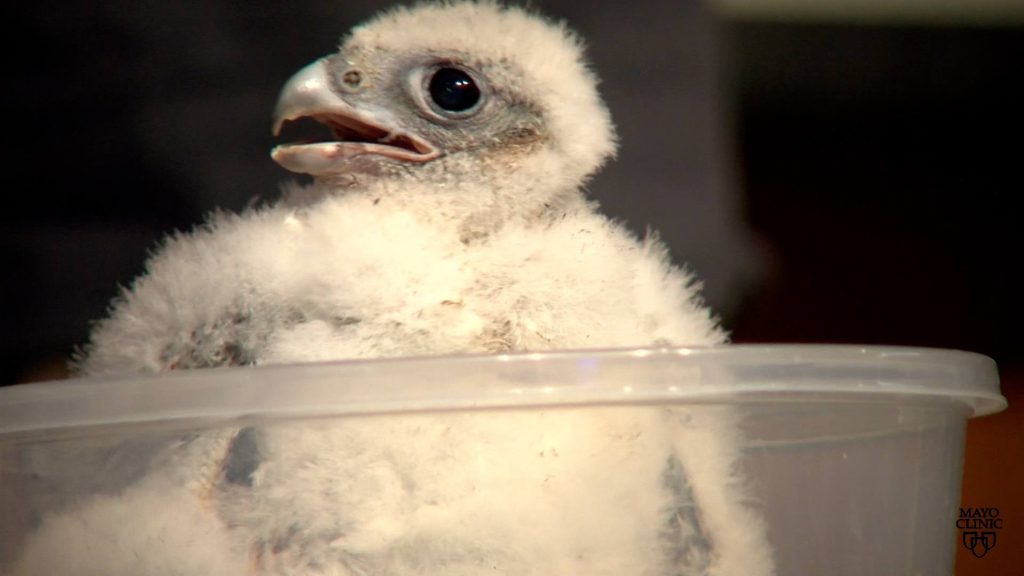-
News Cycle
Falcon frenzy: 4 chicks banded

Meet Piper, Aero, Horus and Genesis. They are the newest chicks to be banded and named by Mayo Clinic's Peregrine Falcon Program.
Before banding and naming, each chick had their gender identified and also received a brief medical exam. Names for each chick were drawn from suggestions submitted by falcon fans from around the world.
Right time for banding
Since chicks are nearly fully grown at 3 weeks old, this is the perfect age for biologists to band them as part of a peregrine monitoring program. Banding is a way for biologists to identify individual birds by placing a band on its leg with a unique number that distinguishes it from others. Biologists use these band numbers to monitor peregrine falcons in Minnesota and other states so that they can learn more about the birds. Some of the things that banding helps track are the distances birds travel, how long they live, who they mate with, and how many chicks they have.
During banding, a biologist secures a metal band around each chick's legs with special pliers and rivets. The right leg band is a federal band for tracking — it's silver, with eight or nine numbers on it. The chick's left leg band is colored and has large letters and numbers that can be read by a biologist from up to 700 feet away. Each bird's band information is entered into the federal bird banding and the Midwest Peregrine Society databases so the chicks can be tracked after leaving the nest box.
What's next?
They will continue to grow as they prepare for their next adventure: fledging and learning to fly. A live falcon cam in the nesting box provides a front-row seat as the chicks continue to grow and soon leave parents Hattie and Orton as empty nesters.
The Peregrine Falcon Program supports the Mayo Clinic value of stewardship and recognizes the healing dimension of nature. Following World War II, the widespread use of pesticides, especially DDT, put many species of wildlife at risk. When DDT was banned in 1973, recovery efforts began for many threatened species, including the peregrine falcon. At the invitation of the not-for-profit Midwest Peregrine Society, Mayo Clinic began hosting the falcons in 1987, and has produced 70 chicks over that time.
Journalists: Broadcast-quality B-roll from the banding can be found in the downloads below. Please courtesy: "Mayo Clinic News Network."







